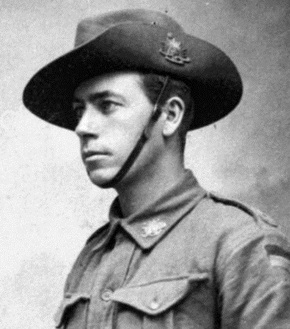HANLON, Edward Michael
| Service Numbers: | 2707, 2707A |
|---|---|
| Enlisted: | 11 August 1915, Brisbane, Queensland |
| Last Rank: | Sergeant |
| Last Unit: | 9th Infantry Battalion |
| Born: | Brisbane, Queensland, Australia, 1 October 1887 |
| Home Town: | Brisbane, Brisbane, Queensland |
| Schooling: | Not yet discovered |
| Occupation: | Grocer (later Premier of Queensland) |
| Died: | Natual causes, Brisbane, Queensland, Australia, 15 January 1952, aged 64 years |
| Cemetery: |
Toowong (Brisbane General) Cemetery, Queensland |
| Memorials: | Brisbane Queensland Parliament War Service Honour Board |
World War 1 Service
| 11 Aug 1915: | Enlisted AIF WW1, Private, 2707, Brisbane, Queensland | |
|---|---|---|
| 21 Oct 1915: | Involvement Private, 2707, 25th Infantry Battalion, --- :embarkation_roll: roll_number: '15' embarkation_place: Brisbane embarkation_ship: HMAT Seang Bee embarkation_ship_number: A48 public_note: '' | |
| 21 Oct 1915: | Embarked Private, 2707, 25th Infantry Battalion, HMAT Seang Bee, Brisbane | |
| 26 Aug 1919: | Discharged AIF WW1, Sergeant, 2707A, 9th Infantry Battalion |
Help us honour Edward Michael Hanlon's service by contributing information, stories, and images so that they can be preserved for future generations.
Add my storyBiography contributed by John E
"Edward Michael (Ned) Hanlon (1887-1952), railway worker, grocer and premier, was born on 1 October 1887 at Paddington, Brisbane, fifth of seven children of London-born Michael Hanlon, drayman, and his wife Mary Anne, née Byrne, from Ireland. Educated at Petrie Terrace State School and Brisbane Technical College, Ned worked as a schoolboy in his father's milk-delivery business. In 1901 he was a message-boy for several barristers before being employed in a grocery shop. During his teens he belonged to the Toowong Workers' Political Organisation and became part of a Labor Party team which addressed political meetings throughout Brisbane. He joined the Queensland Railways Department as a porter in 1903 and was later a shunter. Involved in the development of unionism in the railways with men such as Frank Cooper, Mick Kirwan, Joe Sherry and Tom Brown, he helped to establish the Queensland Railway Union, and was a member and vice-president of its management-committee. The 1912 general strike in Brisbane was a traumatic experience for Hanlon, who held a seat on the strike committee. Although he was passionately committed to this struggle to preserve unionism, his experiences convinced him of the futility of direct industrial action. When the terms of the settlement of the strike required that he, Cooper, Kirwan and Sherry leave the railway service, Hanlon returned to the grocery business.He enlisted in the Australian Imperial Force on 11 August 1915, joined the 9th Battalion in Egypt in February 1916, served on the Western Front, rose to sergeant and was discharged on 26 August 1919 in Brisbane. In partnership with his brother Patrick, he set up a grocery business. On 17 April 1922 at St Brigid's Catholic Church, Red Hill, he married Elizabeth Carver (d.1946). Hanlon represented the Paddington district at the 1925 Labor conference which drafted the Australian Labor Party's municipal policy for the first Greater Brisbane Council elections. The intensity and labyrinthine nature of Labor politics in Brisbane's inner working-class suburbs helped to develop in Hanlon an ability to 'mix it'. Contemporaries regarded his 'Irish temper' as one of his chief political assets. In 1926 he won pre-selection from the sitting Labor member for the seat of Ithaca in the Legislative Assembly; he entered parliament on 8 May and held the seat for the rest of his life.
After Labor's landslide defeat in 1929, Hanlon came under notice as an effective, robust parliamentary debater, with a capacity to wound the conservative government of A. E. Moore. In Forgan Smith's government Hanlon was home secretary from 17 June 1932 until 5 December 1935 when he became secretary for health and home affairs. As the minister largely responsible for the development and implementation of the A.L.P.'s welfare policies, Hanlon held assumptions and attitudes that had important consequences for the character of Queensland society. Under his administration Aborigines continued to be subjected to 'enforced population transfers, confinement to particular areas under relatively arbitrary and quite authoritarian regimes, excessive moral scrutiny, interference in intimate human relationships, supervised breeding, imposed placement and calculatedly inferior educational training for their children, control over their labour conditions, wages and personal property, and even suppression of their ''injurious" or menacing ''customs" or practices'. In these ways, Aborigines who, in their 'natural' state—according to Hanlon—were 'about 1,000,000 years behind the white race', were 'protected' by the state..."















